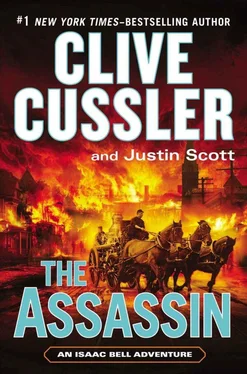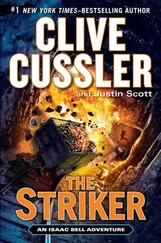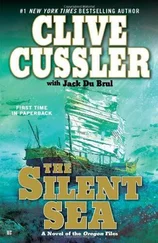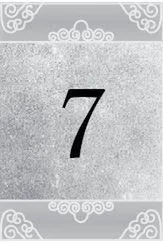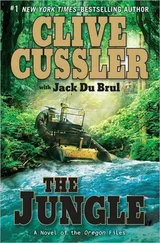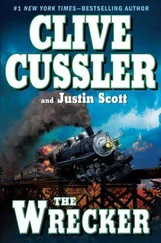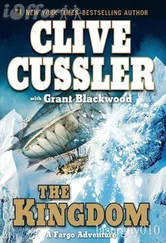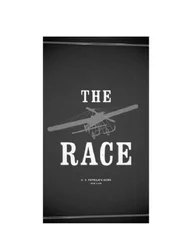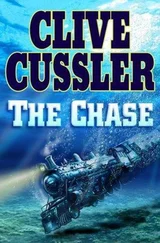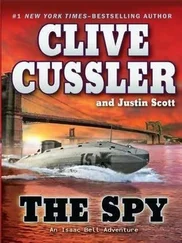“You think you scare me?”
The assassin tightened the gag.
“Today in our modern, gentler age, we use naphtha to clean clothes and dissolve grease and paint. But since the auto became popular, it is especially important to give gasoline its kick. Have you ever seen gasoline catch fire? Imagine the leaps of flame that naphtha produces. Who, Mrs. McCloud? Who else did you tell that I gave you the powder that you fed to the old man?”
She shook her head. She was watching the tin, but there was still more contempt than fear in her eyes.
The assassin upended the tin and poured the naphtha on her head, soaking her hair and her shabby housedress, then loosened the gag and asked again in the same quiet, persistent voice, “Who else did you tell that I gave you powder to put in Mr. Comstock’s coffee?”
The assassin signaled that it was now Matters’ turn. Steeling himself to act, Matters scraped a kitchen match on the cookstove’s grate. Flame flared in a burst of pungent smoke.
“Who else?”
“No one. I swear it.”
“No one but the messenger you sent to blackmail me,” said Matters.
“I didn’t tell him everything. Just enough to scare you to make you pay.”
“You did that all right.”
“Where is he?” she asked, eyes locked on the flame.
“Who? Your blackmail messenger? He died. After he told us where to find you.” Matters turned to the assassin, who was watching intently. “She believes me, and now I believe her.”
Mrs. McCloud’s entire body sagged with despair, and she whispered, “My son.”
“Ask her,” said the assassin, “how she traced me to you.”
Bill Matters said to Mrs. McCloud, “You heard the question. What made you think I was the one to blackmail?”
The widow suddenly looked twenty years older and had tears in her eyes. She whispered, “My son followed the old man to his office. He saw you together. He saw you meet every day in a tearoom. Like you had secrets away from the office.”
“Your son was a good guesser.” To the assassin he said, “I believe her. Do you?”
The assassin stepped closer and stared into Mrs. McCloud’s eyes.
“Say it again: No one else.”
“No one else. I swear it.”
“Do you believe her?” Matters asked again.
“I told you, I believe her.”
“All right.”
“But,” said the assassin, “she will never leave you in peace until she dies.”
Bill Matters pondered in silence. Suddenly he heard his own voice babbling foolishness. “What could she say? Who would believe her?”
The assassin said, “They will dig Comstock up and administer the Marsh test. What do you suppose they will find in his remains?”
Matters shook his head, though he knew of course.
“ Poudre de succession! That is French, you poor man, for ‘inheritance powder,’ which is a euphemism for ‘arsenic.’ In other words, they will hang you for poisoning Averell Comstock.”
“I won’t tell a soul,” said Mrs. McCloud. “I promise.”
Bill Matters kept shaking his head. He could not abide the woman’s fear. Mary McCloud’s scornful contempt had underscored the deadly threat of blackmail. But her fear pried open his heart. He did not doubt that most men were his enemies. But not women. Twice widowed, father of daughters given to him by women he loved, he heard himself whisper a coward’s confession.
“I don’t know if I can do this.”
“That’s what you have me for,” said the assassin.
When Isaac Bell got back from Washington, D.C., he borrowed a Stanley Steamer from a good friend of Archie Abbott, a well-off New Yorker who, as Archie put it, “passed his days in a quiet, blameless, clubable way.” He drove north of Manhattan into Westchester, passing through Spuyten Duyvil, Yonkers, and Dobbs Ferry. The road, paved with concrete in some sections, asphalted in others, graveled here and there, and along a few stretches still dirt, passed country clubs, prosperous farms, and taverns catering to automobilists from the city. He arrived in North Tarrytown in a traffic jam of farm wagons, gasoline trucks, and autos all packed with workmen.
It was Election Day, the town constable explained. The wagons, trucks, and autos were ferrying three hundred of John D. Rockefeller’s estate gardeners, masons, road builders, laborers, and house servants to the North Tarrytown polls to vote for Rockefeller’s choices of trustees.
“Will he win?” Bell asked.
“He always does,” said the constable, who surely owed his job to the incumbents. “But, this year, the butcher is waging a mighty campaign.”
He pointed Bell in the direction of the Rockefeller estate. Soon the bustle of the town was forgotten, dwarfed by vast building improvements — grading new roads, damming rivers, digging lakes, erecting stables and guesthouses, and laying out a golf course — that appeared to absorb the surrounding farms and entire villages. Rounding a blind bend, he saw an old tavern that stood alone in the sea of mud. A sign on the roof named it
SLEEPY HOLLOW ROADHOUSE
A hand-painted addition stated
NOT FOR SALE
NOT EVEN TO YOU, MR. PRESIDENT
Bell swerved off the road and stopped in front with a strong hunch that the proprietor of the Sleepy Hollow Roadhouse would be more than willing to tell him a thing or two about Rockefeller’s local activities. He ordered a glass of beer and got an earful.
“Retired, the man is lethal,” said the very angry tavern owner. “If the nation thinks that Standard Oil is an octopus, they should see him operate in Pocantico Hills — where, just so you know, my family logged and fished, and farmed those fields across the road, for two hundred years before that sanctimonious pirate pulled up stakes in Cleveland to foist himself on New York and, by extension, our small hamlet.”
Mine host paused for breath. Isaac Bell asked, “What makes him sanctimonious?”
“He’s a teetotaler. It galls the heck out of him that I’m selling drinks right outside his front gate. He put my competitor out of business by buying up every house in the hamlet that supplied his customers. But he can’t do that to me because my customers drive their autos up from the city like you.”
“So it’s a standoff.”
“As much as one man can stand off against an octopus. Who knows which way he’ll come at me next.”
“Is he here often?”
“Too often. Here all the time, now that he’s built his own golf course.”
“How big is the estate?” said Bell.
“Three thousand acres and counting. The man can drive for days on his own roads and never use the same one twice.”
Isaac Bell found the gates open and unmanned. The driveway swept through dense forest, open hayfield, and mowed lawns as green as any he had seen in England. Bridle paths, and carriage roads of crushed slate, crisscrossed the drive and disappeared under shade trees. Clearings at bends in the driveway offered sudden, startling vistas of the Hudson River.
He passed stables and a coach barn, guest cottages, gardens, both sunken and walled, a teahouse, and a conservatory under construction, its graceful framework awaiting glass. A powerhouse was hidden behind a stone outcropping with its chimney disguised by a clump of tall cedars. The drive climbed a gentle slope to a plateau that looked out on the river and circled a large mansion in the early stage of construction. Masons swarmed on scaffolds, buttressing deep cellar holes with stonework.
Bell was wondering in which of the older or newly built smaller buildings Rockefeller actually lived when he noticed below the plateau a canyon-like cut through a stone hill. He drove into it along a flat roadbed. Drill marks in the vine-tangled stone sides, ballast crunching under his tires, and chunks of coal glittering in the sun indicated it was an old railroad cut abandoned decades earlier. He emerged on the far side of the hill beside a cluster of weathered cow barns that appeared to be the remnants of a dairy farm subsumed by the estate.
Читать дальше
